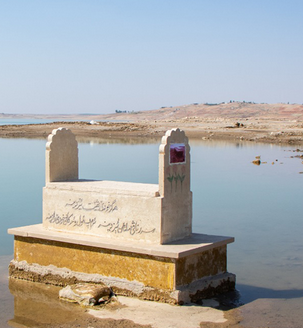
The discovered tombs are believed to date back to the Hellenistic or Hellenistic-Seleucid period.
Archaeologists in drought-hit Iraq have discovered 40 ancient tombs after water levels in the country’s largest reservoir declined, according to an antiquities official.
The tombs, believed to be more than 2,300 years old, were unearthed at the edges of the Mosul Dam reservoir in the Khanke region of Duhok province in the country’s north.
“So far, we have discovered approximately 40 tombs,” Bekas Brefkany, the director of antiquities in Duhok and leader of the archaeological work at the site, said on Saturday. His team surveyed the area in 2023 but spotted only parts of a few tombs. They were able to work on the site only when water levels dropped “to their lowest” this year, Brefkany said.
In recent years, archaeologists have uncovered ruins dating back thousands of years in the same area, as a result of droughts that have plagued Iraq for five consecutive years. “The droughts have a significant impact on many aspects, like agriculture and electricity. But, for us archaeologists … it allows us to do excavation work,” Brefkany said.
The newly discovered tombs are believed to date back to the Hellenistic or Hellenistic-Seleucid period, according to Brefkany. He added that his team is working to excavate the tombs to transfer them to the Duhok Museum for further study and preservation, before the area is submerged again.